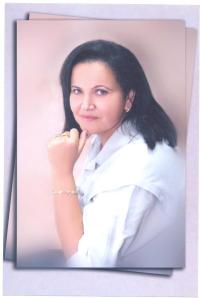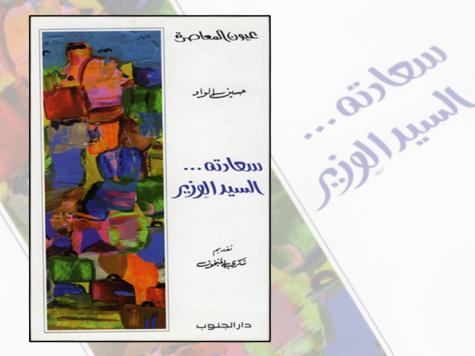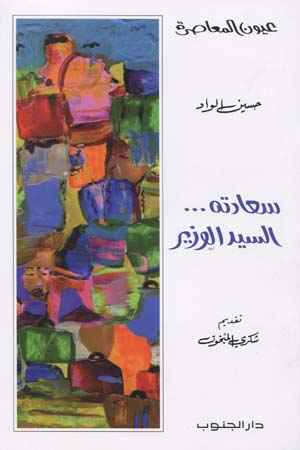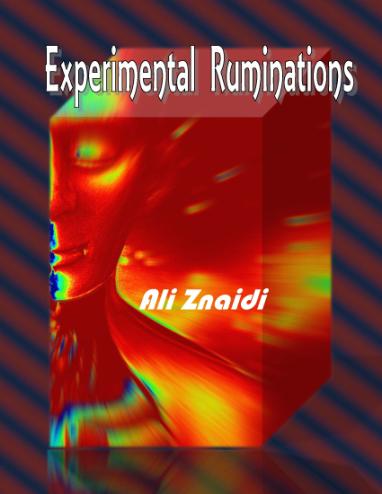
Picture of Fatma Ben Mahmoud borrowed off http://www.facebook.com/fbenmahmoud
A Batch of Poems by Fatma Ben Mahmoud (Translated by Ali Znaidi)
These are the original poems in Arabic. They are taken from her poetry collection Another Desire Doesn’t Interest Me. You can also read them here.
قصائد قصيرة لفاطمة بن محمود من مجموعتها رغبة أخرى لا تعنيني
الشاعر
وحيدا .. بلا نشيد
كل المدن نبذته
كل الأرصفة هجرته
فلاذ بيت في .. قصيد
حرقة الأسئلة
سؤال الجمر*
لماذا كلّما تشعل
سيجارة
أكون أنا .. الرّماد ؟
جسدي القتيل
أستلّ منه قلبي
و أشعله .. فتيل.
ديمتريو
الى صديقي الفنان هشام الكتاري
في غرفته .. الوحيدة
داعب العازف أوتار
قلبه
فتنهدت .. حبيبته
البعيدة.
قبلة
كلّما
ترتعش اللحظة بيننا
يتبرّد الورد
و يشتعل،
شفتاك نار
و ريقك .. عسل
Bonne année
سنة جديدة
و تنهمر على العام الجديد
الوعود،
و أنا يهزّني الفرح الجميل
و أتمنّى : لو شهيّة الأماني.. تعود.
انتظار
منذ أن هجرها الله
و أنكرها النبيّ
تجلس على جمر الوقت
تلك البنيّة
تنتظر الحلم
و تستعطف الذي :
لا … يرحم
إكتشاف
كانت كعادتها
تحبّ المساء
و تستلذ ّ الحرام
عندما اكتشفت الحكمة
خرست عن .. الكلام.
حال الطفلة
الى دنيا ميخائيل
كانت الطفلة
تعدّ الأحلام بأصابعها
و تبكي ..
لأن عدد الأصابع لكلّ الأحلام
لا .. تكفي.
وردته الفصيحة
الى الهادي الدبّابي
أيها البستاني
امنحني وردة واحدة
أهبك معنى لكلّ الورود.
لقاء
صدفة
مرّ الذي
تحبّ الرّوح أن تراه،
اهتزّ عصفور الصدّر
ارتحل البصر نحوه
و سافرت نحوي .. عيناه.
إشتعال
و اذ تلتقي النّار بالناّر
و ترتعد كل أوصال..
الجسد،
يرتوي القرنفل
يتبرّد ورد الأنوثة
المتقدّ،
و يذوب الرّخام
لهذا المساء طعم الصبا
و للشفاه وظيفة أخرى
غير الكلام.
مشهد عادي
في طريق المدرسة
طفل … أراه بلا محفظة،
يجوب أروقة القاعة …
نسي الكرّاس
يدنو من كلّ طاولة
أتلف الكتاب
يلامس كلّ كرسيّ
و ضيّع المقلمة،
طفل…
يمسح في المقهى ..
الأحذية.
المومس
كل صباح ..
تعلن التوبة
ترتب وحدتها
و تحصي أمنيتها
اليتيمة
…
آخر كل ليلة
تعود الى عادتها .. القديمة
هــــي
يا لهذه المدينة كم
تضيق ..
تشتدّ أزقتها
فتختنق الخطى،
غير أن بابنا الخشبي
يفتح على قلبها..
الفسيح
تلك الأمّ .. الطيبة.
مشهد ليلي
مطر حزين
و الليل .. منفى،
هل يحتاج أن يضيء المكان
اذا كان في العزلة
الفتى .. الأعمى؟
رغبة
نام الليل
و استيقظ جسد …
كان قد تورّق
نجمة يانعة هي
لم يقطفها الهلال
و ضمّها الأرق،
تأوهت في غصنها .. شهوة
فقطفها الخيال
و استنارت النجمة توهجا
فتململت.
جنازة
أعلم
اذ يلفّ هذا الجسد
الكفن
ستنوحني أمّي
طويلا
تفتقدني غرفتي
و يشيّعني الذين
آلفتهم أمدا
حشدا كبيرا
من .. الشجن.
مشهد شتوي
ليل عميق
و ريح تبللّها المطر
و هذا الذي :
حوله ما يشبه المحفظة،
و له كتاب قديم
و بعض أمان تزرع
في .. الورقة
و بقربه تماما …
اناء ..
و دقّات رتيبة تخترق
سمعه،
تك ، تك ، تك ،
قال الطفل :
– انها الساعة
تضبط ما فات من الليل
و أجزائه المقبلة
و كان يقصد حبّات مطر من
السّقف
تدقّ الاناء الذي :
يكاد يلامس .. قدمه.
ظمأ
قرّب شفتيه
من فيها
ارتعش لسانه
من حلو الرّضاب
و ترقرق ريقها
في الرّوح
حتى .. ارتوى
ثمّ .. أغلق الحنفية
و مضى.
نشوة
مدّ رغبته لها
بسطت شهوتها نحوه
رفعت ورقة التوت
……………………
…………………..
أصابه الدّوار
كادت…. تموت.

Picture of the Front Cover of Another Desire Doesn’t Interest Me borrowed off http://www.fatmabenmahmoud.com/poem.html
Here you are the English translation for this batch!
The Poet
Alone… Without a chant
All the cities rejected him
All the pavements forsook him
So he sheltered in a line… in a poem
The Ardor of Questions
*The Embers’ Question
Why do I become… ash
whenever a cigarette is lit?
I unsheathe my heart
from my killed body
and I burn it.. as a wick.
Demetrio
for my friend, artist Hichem Ktari
In his single room
the instrument player fondled the strings
of his heart.
Thus his far-flung lover
sighed.
A Kiss
Whenever the moment
shivers between us
roses get cold,
then on fire
Your lips are fire,
your spittle.. honey.
Bonne année
A new year,
Then promises are showering
the new year,
& I’m taken by the beautiful joy,
and I wish if the appetite of wishes.. returned.
Waiting
Since Allah deserted her
and since the prophet denied her
that little girl
sits on the embers of Time,
waiting for the dream
and beseeching that
one who is not… merciful
A Discovery
She used to love the evening
and find the forbidden pleasurable.
When she discovered wit
she shut up her mouth.
The Girl at this very Moment
for Donia Mikhail
The girl was
counting dreams on her fingers
and crying..
because there are not enough fingers
for all the dreams..
His Eloquent Rose
for Hedi Debbabi
O, gardener!
Give me just one rose!
I’ll give you a meaning for all roses.
An Encounter
Without a plan
the one whom the soul loves to see
passed by.
The bird of the chest quivered.
The sight tripped into him.
And his eyes travelled…towards me.
A Blaze
And when fire meets fire
and all the body’s joints tingle,
the carnations get watered,
the blazing roses of femininity get cold,
and the marble melts.
This evening tastes like juvenility,
& lips have another function,
apart from speaking.
An Ordinary Scene
On the school pathway.
A child… I saw him without
a schoolbag, roaming the classroom’s corridors…
He forgot the copybook.
He draws close to every desk.
He tore the book apart.
And he lost his pen-case.
A child…
polishing shoes in the café.
The Prostitute
Every morning..
she declares repentance
she tidies up her loneliness
and enumerates her orphan
wish
…
At the end of every night
she reverts to her old habit
She
O, how narrow this city is becoming!
Its alleys are getting tougher.
Thus the footsteps are suffocated.
But our wooden door
opens onto
her expansive heart—
that kind mother.
A Nocturnal Scene
A sad rain
And the night.. is an exile.
Does the place need to emit light
when the blind boy was in this seclusion?
A Desire
The night slept
and a body that has turned into foliage
woke up…
She was a vivid star,
not plucked by the crescent,
but hugged by insomnia.
A desire moaned in her bough
Thus, imagination plucked her.
And the star became more glowing.
Thus, she fidgeted.
A Funeral
I know when the coffin
shrouds this body
my mother will mourn me
very long,
and my room will miss me
and the ones whom I kept company
for long—
a large crowd of grief—
will escort me to my final resting place.
A Wintry Scene
A deep night
and a wind being wetted by rain.
And this one –
around whom something similar to a schoolbag –
had an old book,
and some wishes being grown… in the paper.
And precisely beside him…
an utensil..
and monotonous beats pricking his ears:
tick, tick, tick,
The child said,
It’s the clock
adjusting what was left
of the night
and its upcoming parts.
& he has meant
rain grains
from the ceiling
banging the utensil
that was about to touch.. his foot.
Thirst
He drew his lips closer
to her mouth.
His tongue trembled
out of the spittle sweetness,
and her spit glided along
the soul
till he got watered.
Then he turned off the tap
and went away.
Ecstasy
He extended his desire towards her.
She spread her desire towards him.
She raised the mulberry leaf
……………………………..
……………………………..
He was attacked by vertigo.
She was about to die.
Fatma Ben Mahmoud’s Bio:
Fatma Ben Mahmoud is a Tunisian poet and fiction writer. She worked as a philosophy teacher at Tunisian secondary schools. Then, she joined journalism because she loves writing. She writes prose poetry, flash fiction, and essays. She is mostly known for her micro poems and flash poetry. Her language is characterised by high levels of semantic density and richness and, at the same time, by simplicity. She has published three poetry collections: Another Desire Doesn’t Interest Me, What the Poem Hasn’t Said, and The Rose Which I Don’t Name. As for prose, she has published a collaborative short story collection with Moroccan writer Abdallah Al Mouttaqi titled Dreams Extending their Fingers. She has also published a fictional autobiography titled A Woman at the Time of the Revolution.







